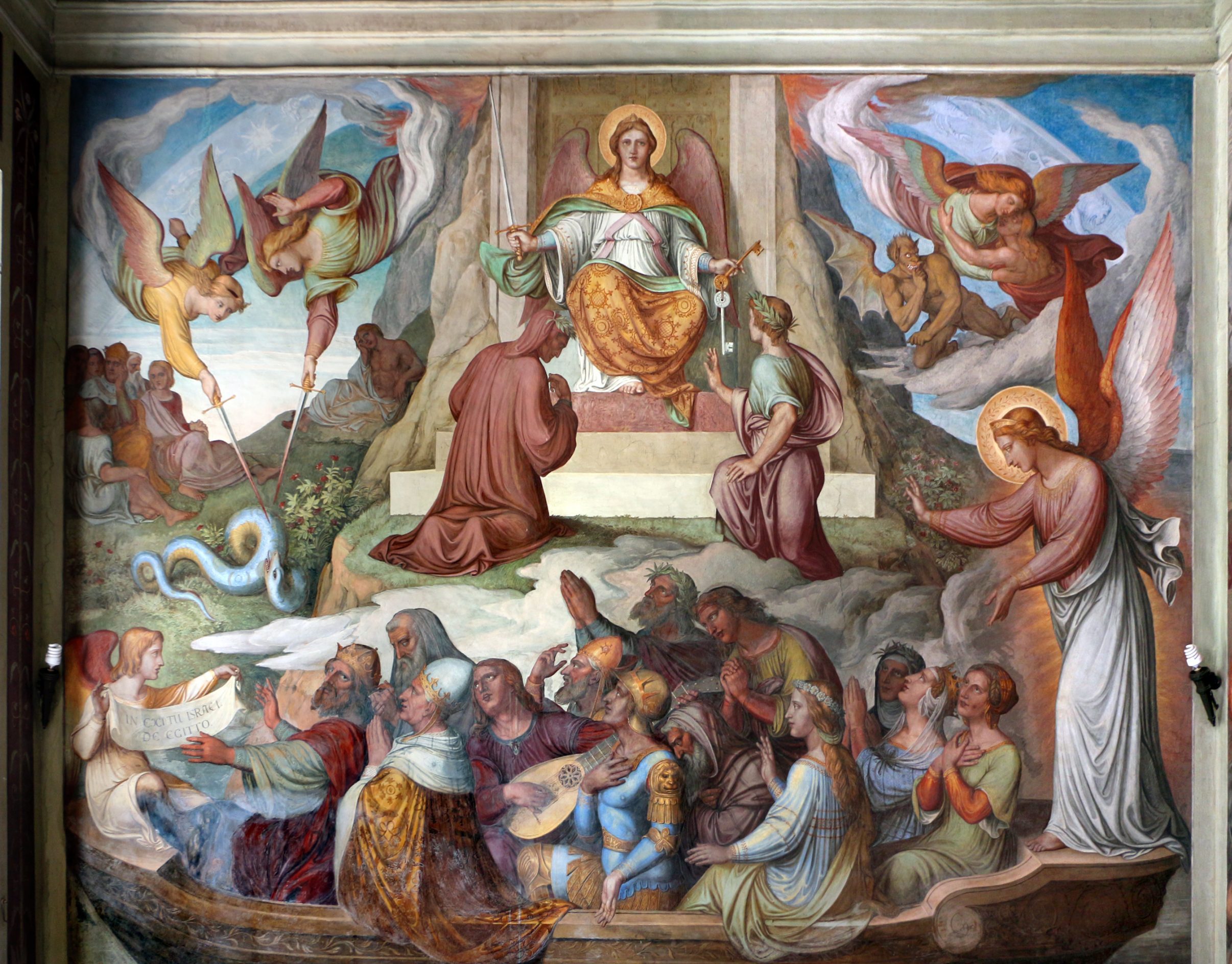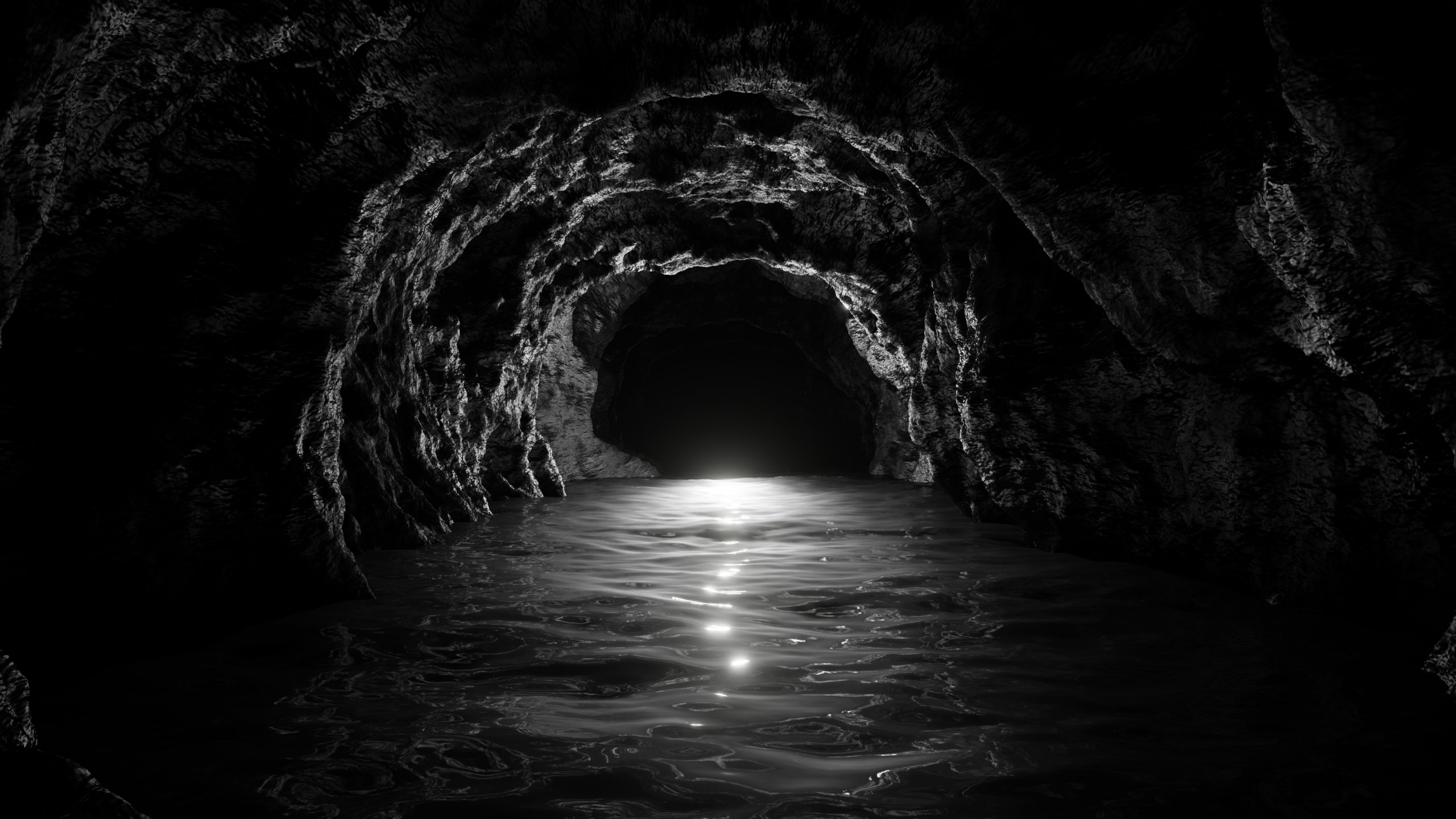The woke know exactly how to break their victims down.
They Can’t Cancel Your Soul

Fear not those who can destroy the body.
After Napoleon III banished him from France, Victor Hugo made his home first in Belgium, then in Jersey, and finally on the island of Guernsey, where he completed some of his most famous and resonant works.
Hugo’s was not a complete exile. He wrote prodigiously, continued to receive friends and admirers from the continent, and evidently enjoyed life in the English Channel. But he had lost his position and his home. Such experiences change a person, though not always for the worse. Standing at a remove, Hugo felt that he could see the world and its inhabitants with greater clarity.
“I find increasingly that exile is good,” he wrote in his third year of isolation.
It is as if, without their knowing it, the exiles were near some sort of sun: they mature quickly. These last three years, I feel that I am on the true peak of life; I can distinguish the real lineaments of all that people call facts, history, events, successes, catastrophes—the huge machinery of Providence. At least, for this reason alone, I should thank Mr. Bonaparte who exiled me, and God who chose me. Maybe I shall die in this exile, but I shall die a better man. All is well.
It is unclear just how salubrious an effect the experience actually had on Hugo. It certainly didn’t cure him of his monumental egoism, and his politics post-exile don’t exactly evince perfect moral acuity. But the sentiments here ring true, and they echo through the writings and testimonies of many of history’s exiles and outcasts: that no fate is evil if it is borne well. That suffering, even unjustly, may have some redemptive purpose, and can be cause for gratitude. And that in experiencing loss and isolation, we may occasionally glimpse truths that had been hidden from us. One such insight was displayed prominently in Hugo’s Guernsey home: Exilium Vita Est. Life is exile.
This is easily forgotten when we feel ourselves to be part of the world. When we’re surrounded with friends and family, when we enjoy the esteem of our peers, or when we’re doing meaningful work that we love, we might begin to think that this life is the only one that matters, and that all our striving and all our petty grievances actually amount to something. And so we treat this place as our permanent home, rather than a place of pilgrimage. Sometimes it takes a searing injustice and an abrupt loss—of wealth, position, friends, purpose—to remember that worldly ambitions are all doomed to ultimate frustration. We all realize this fact in death, but by then we are past improving.
My Exile
For me, that forced recollection of earthly impermanence came two years ago. I had a promising career by most measures: At 32, I was a wife and mother of two children, an award-winning documentary filmmaker, and a former advisor at the Canadian foreign ministry. I had recently completed my second Master’s degree, graduating from Oxford University with distinction in International Human Rights Law.
I was also a political candidate, on track to win a seat in the provincial legislature in Alberta, Canada. But my campaign ended abruptly, one month before the election, when a partisan blog published an anonymous accusation that I had “echoed white nationalist rhetoric” in a private, academic conversation years before. In context, I was discussing how policymakers can more effectively address the problem of far-Right radicalism. In my accusers’ telling, I was expressing sympathy with white supremacist terrorism. A media storm ensued, and within four hours my candidacy—and life as I knew it—was over.
I spent the next month the target of a mindless struggle campaign, facing constant demands that I confess and apologize for imagined thought crimes. I was denounced as a fascist, a white supremacist, and a terrorist sympathizer, whose views were “vile,” “shocking,” and “sickening.” People I had never met went on national media and attributed to me hateful, inane beliefs that I have never held, and explained why I deserved to be ostracized and driven permanently from the public square. Partisan activists attacked my family and my faith community. They demanded that my friends denounce me, and scoured my work history to see if I had any other employers who could be pressured into firing me. The conflagration destroyed my career and reputation—maybe irredeemably, because Google never forgets.
Meanwhile, I was not allowed a platform to defend myself. Several journalists and editors told me that they knew the narrative about me was false, but they were afraid to report my side of the story because they didn’t want to be targeted next. The one radio program that hosted me faced boycott campaigns, and the interview was ultimately pulled offline under threats. A number of my former colleagues were privately sympathetic, but none would risk the stain of public association. With a handful of exceptions, most people thought it would be easier to simply pretend I didn’t exist.
As a public person, I felt as if I had been vaporized and condemned to live as a kind of ghost: conscious, seeing everything, yet no longer part of the world. Lurking beneath Hugo’s motto is Ovid’s description of exile as a living death, and I can do no better.
Yet, while I don’t mean to downplay the pain of the experience, this may also be the greatest blessing of exile: it is a social murder, a death within life, which forces us into confrontation with our own finitude. If the goal of philosophy is to learn how to die, then there is no better way to practice it. Stripped of all illusions and pretense, the petty dust of life can sometimes give way to a lucid clarity. In exile, we are made to remember our true homes, while we still have time make ourselves worthy of returning there.
Aleksandr Solzhenitsyn apprehended this too, during his eight years in the gulag and in the exile that followed:
What about the main thing in life, all its riddles? If you want, I’ll spell it out for you right now. Do not pursue what is illusionary—property and position: all that is gained at the expense of your nerves decade after decade, and is confiscated in one fell night. Live with a steady superiority over life—don’t be afraid of misfortune, and do not yearn for happiness; it is, after all, all the same: the bitter doesn’t last forever, and the sweet never fills the cup to overflowing.”
Rather than living for happiness, we should seek the eternal things. “This we must grasp in our dark and terrible hour,” he wrote, that “our life consists not in the pursuit of material success but in the quest for worthy spiritual growth. Our entire earthly existence is but a transitional stage in the movement toward something higher, and we must not stumble and fall, nor must we linger fruitlessly on one rung of the ladder.”
Rediscovering Redemption
Solzhenitsyn’s imagery calls to mind the writings of another famous exile. Dante Alighieri was banished from Florence in 1302, after which he composed his masterpiece the Divine Comedy.
He set the story two years before his exile when, “in the middle of the path of our life, I found myself in a dark wood.” Dante had achieved success in public life, but in the process he had lost sight of the “straight way”—the path of truth. As he veers towards hell, heaven sends him a guide (the poet Virgil) and a divine dispensation to journey through the afterlife, so he might bear witness to the consequences of our choices. The story is, literally, about the experience of death within life.
First, Dante descends into the successive levels of hell, where souls suffer eternally for their worst sins. At the gates of the Inferno, they pass the multitudes of uncommitted and cowardly souls, who “lived without blame, without praise…not faithful to God, not rebels, only for themselves.” Descending further, they find those who lived in thrall to the passions and earthly wants, abandoning reason for desire—the lustful, the gluttonous, the greedy and avaricious. Those are followed by the wrathful, the violent, and by the heretics who believe that the soul dies with the body, and that reality is limited to what can be seen and touched and possessed. In the lowest depths of hell, they encounter the sinners against truth. These are the frauds—flatterers, sophists, bearers of false witness—and finally the treacherous, who conspired cold-bloodedly to betray their friends, and who destroy the possibility of trust and openness.
The Inferno can sometimes read like a revenge fantasy; all of Dante’s enemies end up in hell, sometimes while their bodies are still on earth. But the reader who sees only the cathartic value is missing the point.
Escaping the Inferno, Dante begins the long climb to paradise, ascending the terraces of purgatory. This is the most human plane in the comedy, and the most like our own. It is a place of toil, where the penitent souls are purified of their sins through suffering.
But though they suffer, these souls are not mournful. They don’t curse their fate or resent their punishment. They have left behind the burdens of pride and the blinding illusion of envy in the lower terraces, and so are able to see clearly the purpose of their purgation. They accept their suffering with gratitude, reflecting on their errors in life, relinquishing the desires that had weighed them down, forgiving those who transgressed against them, and rejoicing together in the ascent. Reaching the summit of purgatory, Dante finds himself renewed:
I came from those holiest waters
Re-made, like a plant that grows
Back again with newest growth,
Clean, ready, to climb to the stars.
Cancel culture operates on a similar principle to the Inferno. It delivers perpetual punishment, without any possibility of redemption, for heretics (or perceived heretics) against an emerging ideological orthodoxy: people who used the wrong word, defended inherited wisdom, or attempted to critically examine a topic that had been declared off-limits to philosophical inquiry.
But cancel culture reflects and heightens the inverted priorities of the world. It incentivizes cruelty and performative outrage, and so suffocates humility, generosity, and openness. It asks us to go in search of grievances, and to look for the bad in others, but never to reproach ourselves. It inflames tribal hatreds and artificial divisions. It demands that people lie, that they confess to crimes they did not commit, and that they conceal their true beliefs to preserve themselves. Envy, hubris, and wrath are rewarded, while prudence and a slowness to judgement are treated with suspicion, as though they are evidence of an insufficient commitment to the cause. In the name of love and tolerance and solidarity, it asks us to hate our enemies, inform on our neighbors, and desert our friends.
How differently would we live if we understood our world as Dante did, regarding our suffering not as an injustice, but as a means of liberation, the process by which our eyes and hearts are purified? When being hated or lied about, we would be moved to pity rather than anger. We would never be afraid of suffering injustice, but only of being unjust ourselves.
The Test
For a few months I found it easy to maintain this philosophical perspective. It was easy, in part, because I believed that I would eventually be vindicated, that the truth would out, and I would have a place in the world again. Anyone can bear suffering nobly when they know that, and when, it will end. But a faith that is contingent is not real; it’s just bargaining.
The real test of spiritual stamina plays out over months and years, or maybe over a lifetime. Resisting the contamination of worldly desires, never succumbing to envy of others, never despairing, never returning hate with hate—this is the real challenge. It is a challenge because we are social beings: we need to belong, and we are easily influenced. Our desires are mediated through the desires of others. Our sense of self-worth derives from the opinions of others. Even our perception of reality depends on other people affirming it. The pressure to conform ourselves to the surrounding society, and all its false appearances, can weigh on the soul with almost unbearable intensity.
The Stoic philosopher Seneca (another exile—there is a pattern here) grasped the challenge of standing apart from the world:
a wealthy neighbor provokes cravings in one; a companion with a malicious nature tends to rub off some of his rust even on someone of an innocent and open-hearted nature—what then do you imagine the effect on a person’s character is when the assault comes from the world at large? You must inevitably either hate or imitate the world. But the right thing is to shun both courses: you should neither become like the bad because they are many, nor be an enemy of the many because they are unlike you. Retire into yourself as much as you can.
There, inside ourselves, we hold our most precious possessions, which can never be taken away. Fortune can take away your friends and your property. It can rob you of your health and leave you soaked in slander. But nothing that happens to us can make us less virtuous, or just, or temperate, or kind—not unless we allow ourselves to be changed for the worse. Nothing can deprive us of our inner freedom, nor stop us from setting honest deeds against dishonest words, or helping our friends, or giving succor to those in need.
No matter the extremes of persecution that leave you feeling rootless and without a home in the world, take it as a reminder that there is a world elsewhere—an abiding home to which you can always return, as long as you seek it. And if your suffering should seem long, or if you’ve failed sometimes to meet it with courage and equanimity, be glad: you still have time to shore up for yourself the incorruptible spiritual treasures, which will endure.
The American Mind presents a range of perspectives. Views are writers’ own and do not necessarily represent those of The Claremont Institute.
The American Mind is a publication of the Claremont Institute, a non-profit 501(c)(3) organization, dedicated to restoring the principles of the American Founding to their rightful, preeminent authority in our national life. Interested in supporting our work? Gifts to the Claremont Institute are tax-deductible.
Wherever, however, don’t back down.
Some things can’t be taken away.
A guide for the hexed.
Republicans should defend ordinary Americans, not affluent literati.
Everything we do can be recorded. What now?






